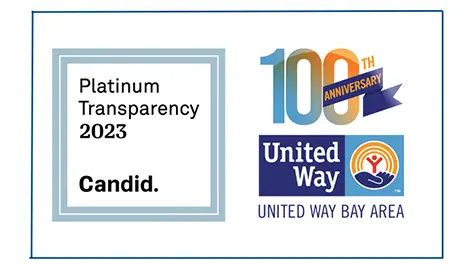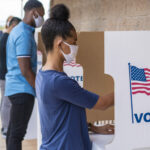Search
Case Study: How BMO x United Way Bay Area Partner to “Grow the Good” Through SparkPoint™
August 5, 2025

The Problem of Financial Inequality
Across the Bay Area, systemic barriers hinder individuals and families from achieving financial stability. The rising cost of living, lack of affordable housing, and limited access to financial education disproportionately impact low-income populations. For many, these challenges create cycles of poverty that are hard to break—especially for students and working adults striving to improve their economic mobility.
As Augustin de Kerversau, Chief Operating Officer at BMO, explains:
You cannot live successfully in a community, if there’s not a certain level of shared resources amongst the community. It just doesn’t work. There will always be different levels of wealth inside a community, but there’s a certain level of basic access and opportunity that every member of the community needs to have. This is where ‘Grow the Good’ comes from…
Opportunity: What BMO Needed
As BMO acquired Bank of the West and expanded its presence in the Bay Area, it sought a partnership that could establish and foster authentic local connections in communities new to its footprint while aligning with its “Boldly Grow the Good” mission through economic mobility programs. It needed solutions that would engage employees beyond transactional volunteering and deliver measurable impact with data-proven results.
This philosophy, “Grow the Good, in Business and Life,” drives BMO’s partnership with United Way Bay Area (UWBA) to support SparkPoint —a UWBA program designed to empower individuals through financial coaching, basic needs support, and education.
The Solution: SparkPoint’s Proven Impact
Why BMO chose to work with UWBA
United Way Bay Area provided the ideal framework through mission alignment, as SparkPoint’s focus on financial empowerment mirrored BMO’s commitment to equitable prosperity. The partnership created meaningful employee engagement touchpoints, including financial coaching opportunities, handwritten encouragement cards, and competitive branch fundraising campaigns.

Why specifically SparkPoint
The SparkPoint program was particularly valuable due to its regional focus, outcome tracking, and scalability across BMO’s Bay Area markets. SparkPoint centers provide services that help individuals and families achieve financial stability through job training and career coaching, reduce debt with financial literacy programs, and improve credit and savings through personalized coaching—all while meeting basic needs like food and housing to remove barriers to success.
Key Outcomes from the Partnership
The collaboration proudly delivered:
- Higher Student Persistence & Success – students who received two or more financial coaching sessions were more likely to persist, demonstrating the power of sustained support
- Scalable Community Impact – BMO’s funding and employee volunteerism have helped UWBA expand SparkPoint to 23 centers across the Bay Area, including the first on-campus center at a four-year university, San Francisco State University
- 29,152 families served, with 80% improving financial health metrics
- Employee testimonials confirming deeper community connections
As Melissa Fitfield, Head of the BMO Climate Institute, reflects:
It’s fundamental for us to feel connected to the communities we serve… to feel connected to other people… Large organizations can feel impersonal, but this bridges the gap.
A Model for Corporate-Nonprofit Collaboration

The BMO-UWBA partnership exemplifies how corporations can ”grow the good” by investing in proven community solutions. Key takeaways for other organizations:
- Address root causes (e.g., financial literacy + basic needs).
- Engage employees to deepen impact and connection.
- Measure outcomes to ensure scalability and effectiveness.
As de Kerversau reflects:
I believe, I truly believe… we have the opportunity to be part of the solution. We’re not able to reach into the community where it’s needed – United Way is. Together, we bring something to the table and do it
- Public Profit. 2023. d*SparkPoint Supports Student Success*. San Francisco: United Way Bay Area. [https://uwba.org/our-impact/research-and-publications/sparkpoint-supports-student-success-2023/].
- BMO. 2024. d*BMO Partnership Impact Report*. Chicago: United Way Worldwide.
- Fitfield, Melissa. 2023. dInterview by J. Elliot Mendez. 12/03/2024.
- de Kerversau, Augustin. 2023. dInterview by, J. Elliott Mendez. 12/03/2024.


